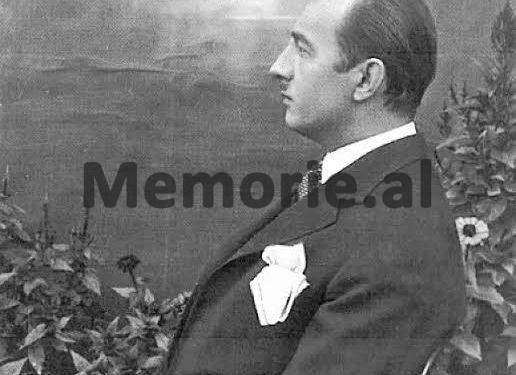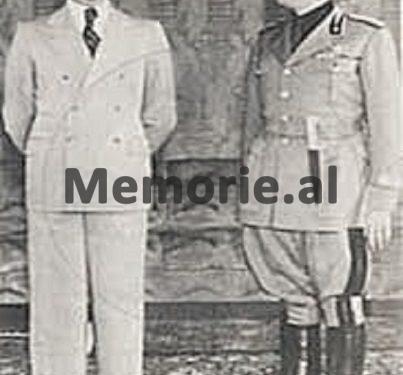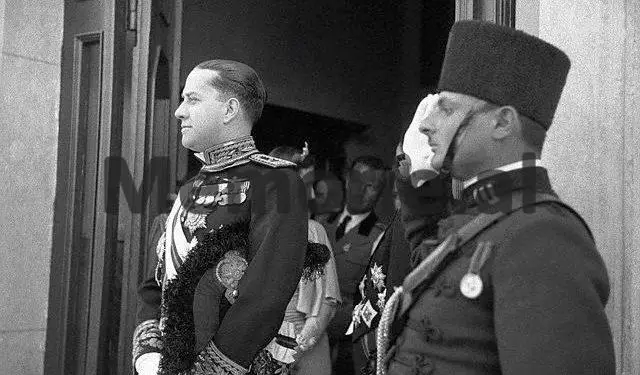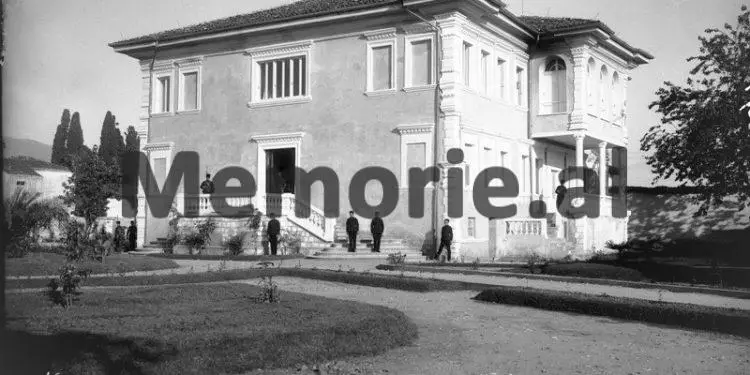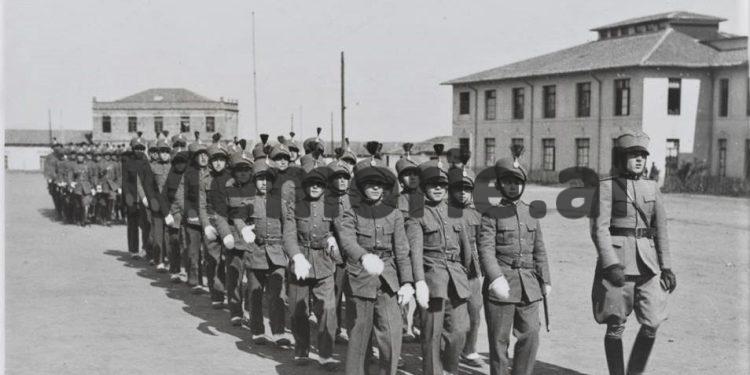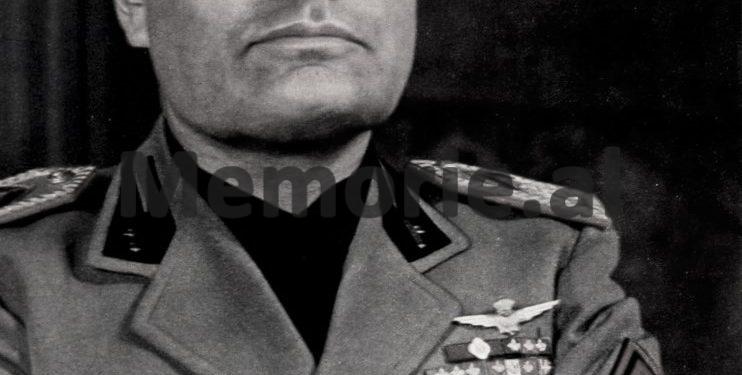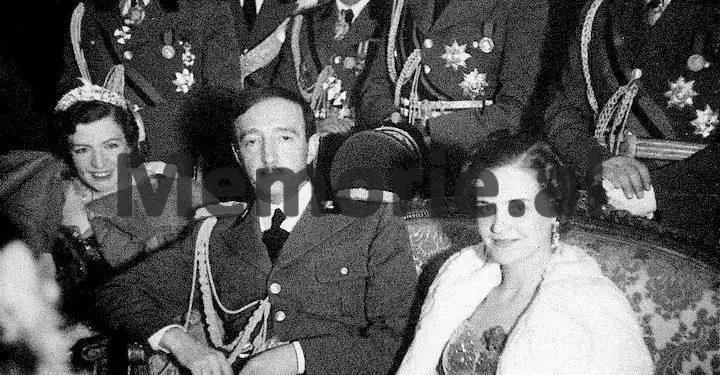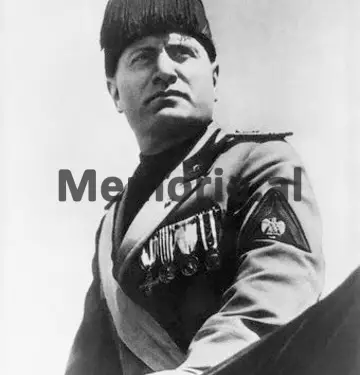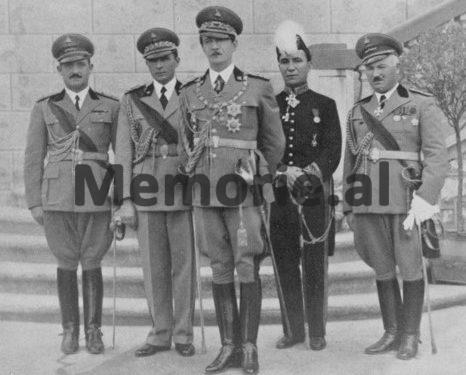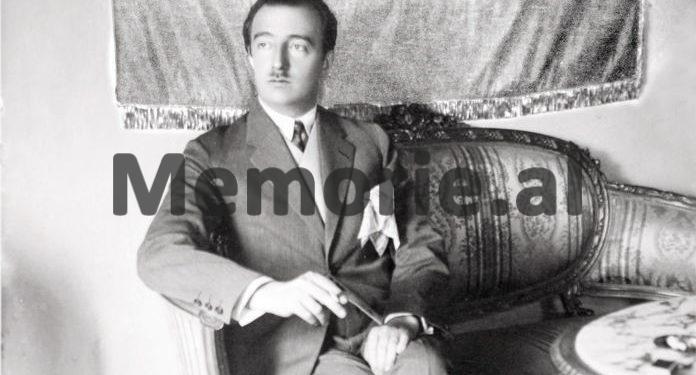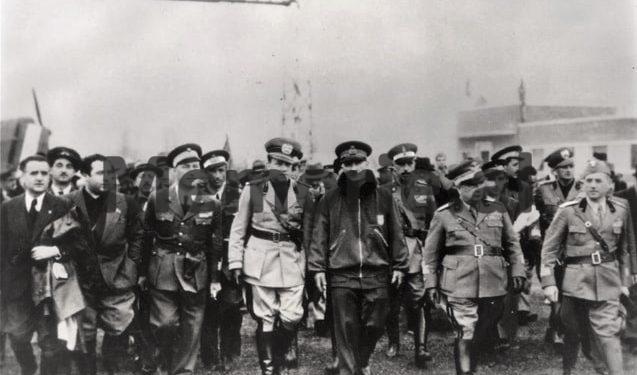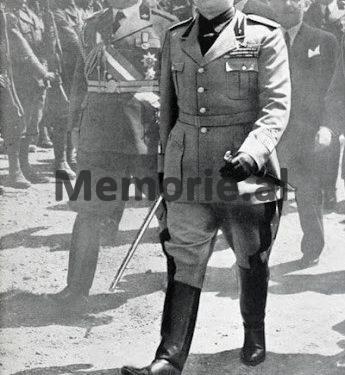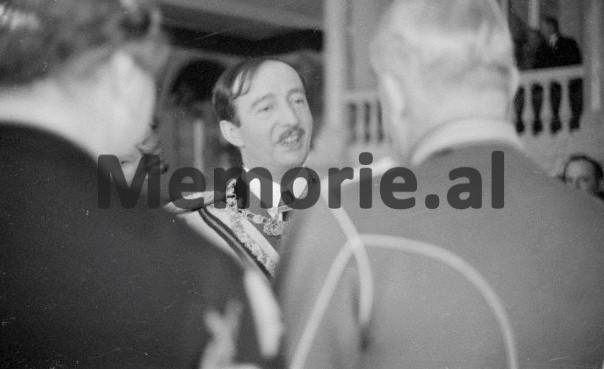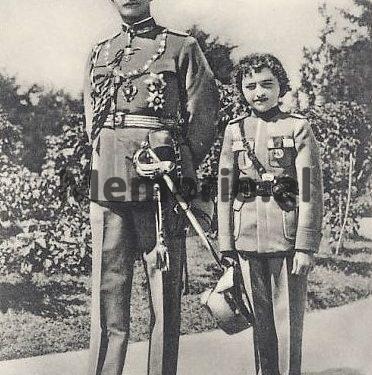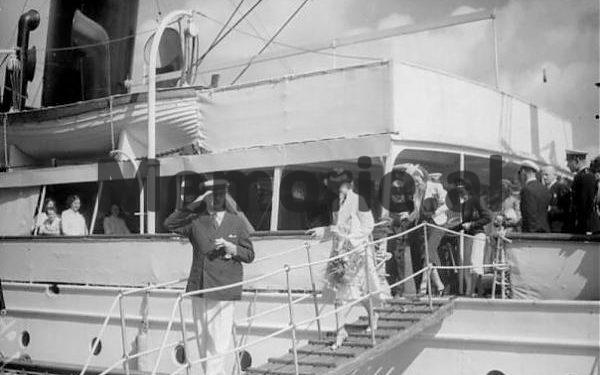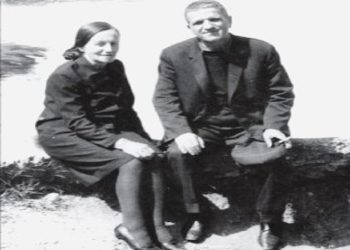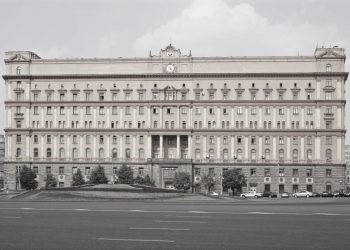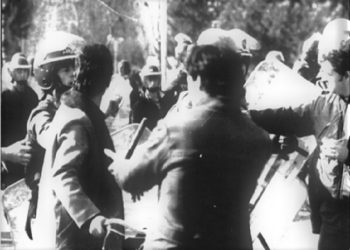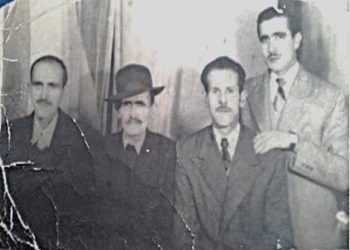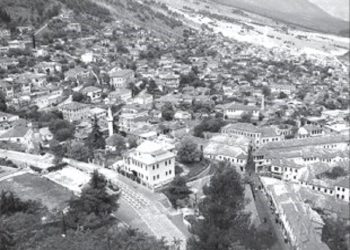Dashnor Kaloçi
Second part
Memorie.al publishes the unknown story of King Zog’s relations with the fascist Italy of Benito Mussolini, who since his coming to power in the mid-20s and throughout the period of the Monarchy, tried by all means to seduce him The King of the Albanians, to put into practice their intentions that the small Balkan country be under their influence. The whole 15-year history of King Zog’s relations with Benito Mussolini, etc., from the point of view of the well-known scholar Bernd Fischer, who has long dwelled on Albanian-Italian relations, as well as the memoirs of Count Çano, etc., which are clearly reflected Italy’s attempts and plans to have Zog and Albania under their control, but after failing, they tried three times to physically eliminate him and after failing there as well, they finally undertook the military aggression of April 7, ’39!
Continued from the previous issue
King Zog’s resistance against the Italian occupation
According to renowned scholar and historian Bernd Fischer, although Mussolini finally agreed with Ciano’s main idea of a political solution to the Albanian problem, he did not like simple and open annexation. Instead he hoped to build irreversible political, economic and military ties between the two countries. The Duchess himself prepared the form of the ultimatum for Zog, which Ciano describes: “Very short, only three dry phrases that gave him the form of a rebuke rather than an international pact.”
In collaboration with Leonardo Vittetti, director general of the Politburo at the Italian Foreign Ministry, Ciano presented his proposal, which at least had the advantage of being drafted with diplomatic expression. The duchess accepted. The Count’s document consisted of eight proposals, which included:
- “The end of a defensive alliance only with Italy.
- The promise of Italian military assistance in case of external threat to Albanian territory.
- Permission for the Italian government to intervene to restore public order.
- Italian state concession to freely use ports, airfields and traffic lines.
- Establishment of the Italian Legation in Tirana at the level of Embassy.
- Receiving Italian financial and technical assistance and advisers in each Ministry.
- Removal of customs barriers between the two countries.
- Extension of Italian citizenship in Albania and Albanian citizenship in Italy “.
Below Ciano mentioned some concessions that had to do with some fascist organizations in Albania, as well as the introduction of Italian instructors in the Albanian Gendarmerie. After this Ciano was confident that Zog would capitulate. In his diary, he writes cynically: “Above all there is a fact that gives me a lot of hope: the quick birth of Zog’s baby. The bird loves his wife and family very much. I am confident that he will choose the security and peaceful future of his loved ones, and to be honest, I cannot even imagine Geraldine wandering and fighting in the mountains of Mirdita, nine months pregnant “.
Meanwhile, in Albania, as a result of constant words regarding troop movements and ultimatums, Zogu and his government were faced with ever-increasing requests for information, mainly from the diplomatic corps. Senior Albanian officials denied that the situation was serious and most members of the government expressed themselves honestly, as Zogu himself led most of these negotiations.
Zog tactics, to gain time!
Until March 30, 1939, the Albanian Foreign Minister did not admit that serious problems had arisen between Italy and Albania, or that Albania was threatened by Italy. He did not even talk about financial difficulties. At that time, Jakomoni informed the British representative in Tirana, Ryan, that although there were financial difficulties between the two countries, the best line of Italian policy was the respect of Albania’s independence and cooperation in all areas of the Albanian regime. From all of this, Ryan was convinced there was nothing to worry about. At the same time, perhaps out of fear, King Zog had greatly reduced the tone of his grievances in February against Italy and especially against Giros.
On March 25, 1939, during an audience with Ryan, Zogu stated that he intended to pursue a “good” policy towards Italy, putting on it only two conditions, the independence and territorial integrity of the country. But these were exactly the two that Count Ciano wanted to remove from Albania. Zogu could never accept this ultimatum, and yet he feared the Italian reaction if he did not accept it. King Zog, once again turned to his favorite tactics: to play to gain time.
On March 28, Zogu informed Ciano that he accepted the demands, but that they were opposed by his ministers, an obvious trick that could not deceive Ciano either. On March 31, the Italian Foreign Minister concluded that Zogu had finally refused to sign. However, the Count encountered other difficulties in implementing his long-awaited plan. These difficulties were of a military nature and came to the fore on March 31st. Military preparations had begun only shortly before the ultimatum was issued.
Military preparation for the invasion of Albania
In the town of Puglia were mobilized four regiments of Bersaliers (special mountain infantry), a regular infantry division, several air force detachments and the entire first squadron of the Fleet. Immediately after that, another division was mobilized as well as a tank battalion by order of Marshal Pietro Badoglios, who had been Chief of Staff and who continued to oppose the occupation of Albania. Addressing the possibility of an unsuccessful or poorly executed landing, Ciano leaned further towards the option of conquering Albania with Zog’s consent, rather than against his will.
In collaboration with the Duchess, the Count prepared a series of other proposals, which were hoped to be signed by King Zog, as they allowed him to save the honor. Accepting new requests was somewhat easier than recent proposals and included:
- “Control of all ports, traffic, roads and airfields, in case of threat to Albania’s independence.
- An Italian advisor in every Albanian Ministry, who would be in the rank of Albanian Minister.
- To the Italians in Albania, all civil and political rights were recognized as Albanians.
- Establishment of the Italian legation in Tirana and the Albanian legation in Rome, at the level of embassies “.
During the preparation of these proposals, Jakomoni made it clear to Zog that the situation was more than serious. King Zog was simply left with a choice. In case he accepted the requests, Ciano would go to Tirana to take part in the signing ceremonies of that Treaty, accompanied by a strong squadron of aircraft, an act that would underline the new relations. In case of non-acceptance, riots would break out across the country, which would be followed by the Italian landing on 7 April.
Realizing that the Italians had taken a step back, or seeing that the time had come to turn to the international community for help, Zogu finally decided to break the silence and notify the powerful American representative, not only of the Italian demands, but and for his response to all requests in particular. Regarding the first request, he told him that he had informed the powerful Italian representative that the Italian landing would be allowed; only after prior agreement and only in case he himself would explicitly request such a thing. Zogu rejected the second request of the Italians, while for the third request he agreed to recognize only the civil rights of Italian citizens.
The occupation is felt in Tirana
The honorable situation was already felt by the population of Tirana. On the evening of April 1 in Tirana, patriotic and anti-Italian manifestations were organized. Also on the evening of April 2 in Tirana was organized an even larger manifestation, and perhaps even less spontaneous than the first, anti-Italian and significantly pro-Zog. At this time Zogu had concluded that the Italians were determined to invade Albania and hoped that these manifestations would push them to change their minds, or at least lead him to organize a National Resistance against the invaders. Within two days, the King ordered the general mobilization and evacuation of the civilian population from Durrës, which was never fully carried out.
Although somewhat pessimistic about the possibility of a negotiated solution, Zogu aimed to keep all channels open and began working feverishly to work out a series of acceptable counter-proposals. Driven by this small hope to save Albania, as well as the fact that Geraldine was on the verge of the birth of his heir, Zogu presented to Ciano on April 2, a revised plan, which includes the acceptable points of Italian ultimatum. King Zog accepted some requests, but continued not to accept the proposals that he deemed to endanger the independence and integrity of Albania.
Finally, the King demanded that General Pariani, the only Italian who had won the respect of the Albanians, come to Albania to discuss the possibility of finding a way out. Pariani had been Italy’s military envoy to Albania during the 1930s and was one of the few Italian soldiers who had left a good impression on Albanians. But despite all this, Ciano ignored Zog’s proposals and thought that in addition to military difficulties, he would find a way to justify the invasion before international opinion.
In search of this, Ciano ordered all Italian civilian personnel and their families to prepare to leave Albania. Ciano informed the world that such a move was dictated because the lives of Italian citizens who were in Albania, was endangered. This claim was so ridiculous that it immediately won the contempt of all the diplomatic staff in Tirana. Duçja and Çiano were losing patience with Zogu and consequently on April 2, he decided to give the order for the invasion of Albania, in case Zogu continued to oppose the Italian demands.
Duce ultimatum on April 6!
On the morning of April 6, Zogu received a telegram from Mussolini stating that the ultimatum ended at noon. King Zog refused to accept that ultimatum, but this time informed his ministers as well as a parliamentary committee. The Italians gave him another six hours. During that time, Zogu gave a certain audience in advance, the American plenipotentiaries in Tirana. It seemed that Zog was already on his way to fate. He spoke bitterly that the Italians had decided to undertake that offensive, just when his wife was giving birth to a child.
In his memoirs, the American representative, Hugh Grant, notes that King Zog, to give the impression of a man deeply disappointed, for something he called the great betrayal by the Italians and the rest of the world. The day before on April 5, he had addressed a call to Western democracies, and that day on April 6, he addressed the Balkan Entente, but without success. During the day of April 6, the first warships that came to take the last Italian civilians appeared in the ports of Durrës and Vlora. In the afternoon, several dozen planes flew over Tirana, dropping leaflets instructing the population not to submit to the Albanian government and not to resist the Italians.
The Italian treaties added that the Italian forces would remain in Albania, as long as peace, order and justice were established. As planes flew over the city, a large crowd of thousands of Albanians demonstrated in Tirana’s main square, and hundreds of young people demanded weapons to defend the country. According to Geraldine’s memoirs, Zogu refused to hand over the weapons, in order not to shed innocent blood. In the evening, an urgent cabinet meeting, as well as a special parliamentary session, voted to reject Italy’s demands and to strongly oppose the landing of Italian forces, calling on the Italians for further talks. But the situation was grim.
In either case, the country’s independence would be lost. At the beginning of April 1939, after the Italians had long failed in several attempts to overthrow Zog and his physical elimination, they finally decided to come to Albania militarily. Meanwhile, on the morning of April 6, 1939, General Guxon was ordered to invade Albania. Memorie.al




